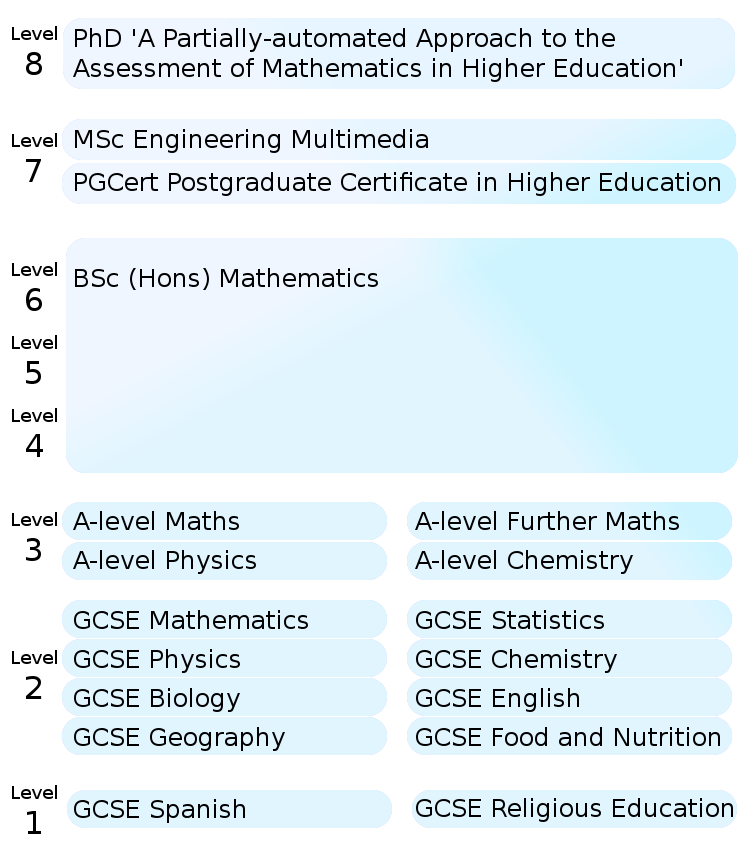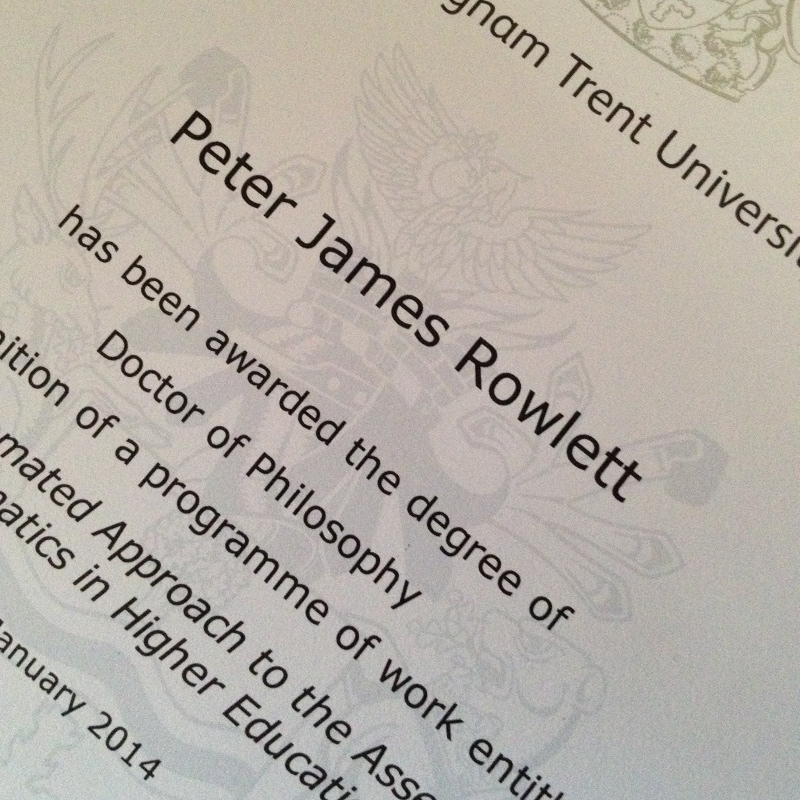Next month I will present at the 8th British Congress of Mathematics Education, the “largest mathematics and mathematics education conference in the UK” which “brings together teachers from early years to higher education, researchers, teacher educators, CPD providers, consultants, policy makers, examiners and professional and academic mathematicians”, according to its website.
My talk is part of the research strand of the conference, organised by the British Society for Research into Learning Mathematics. This society is “for people interested in research in mathematics education”, and I am a member.
I’m presenting the ‘what I did’ portion of my PhD; well, most of it. Anyway, the peer-reviewed proceedings have now been published. My article is ‘Development and evaluation of a partially-automated approach to the assessment of undergraduate mathematics‘. The abstract is below.

